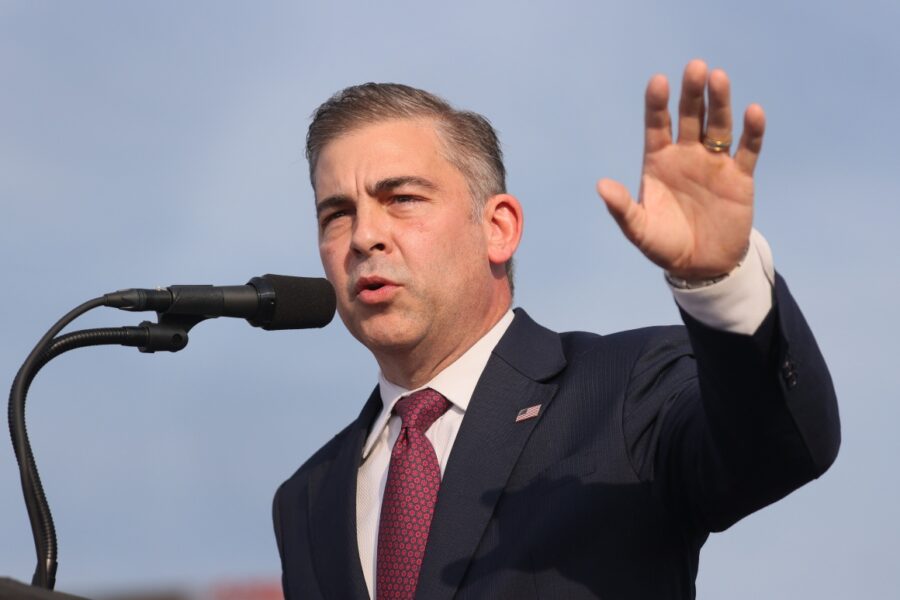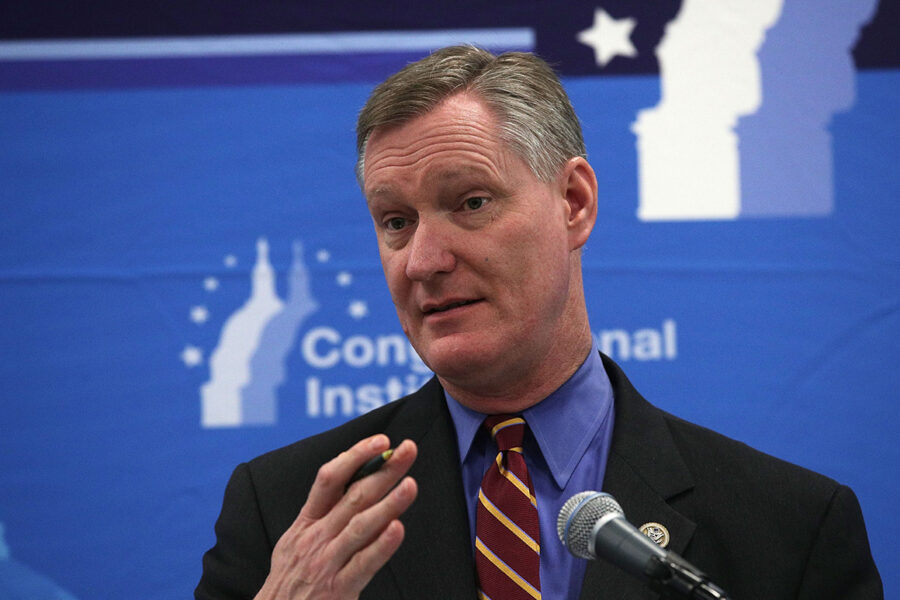Trump-backed Carey wins GOP nod in Ohio special election

Mike Carey has won the Republican primary for a vacant House seat south of Columbus, vaulting to the top of a crowded special election field with support from former President Donald Trump.
Carey’s win affirms Trump’s ability to influence Republican primaries with endorsements even while out of office during the Biden administration. Trump advisers were eyeing the Ohio primary after Susan Wright, another Republican House candidate backed by the former president, lost her own special election for a district in Texas last week.
Carey had 36 percent of the vote to 14 percent for Bob Peterson, in second place, when the Associated Press called the race.
A former coal lobbyist who started his first run for office relatively unknown, Carey played into the former president’s support during his campaign, stating on his website that he would bring back “America first” policies. Carey ran on a fairly conventional Republican platform against congressional Democratic policies on spending, renewable energy, abortion and immigration.
Critically, Carey also labeled himself an “outsider” — like his most high-profile supporter.
Following the Texas defeat last week, Trump moved aggressively to prevent a second loss in as many weeks. The former president held a last-minute tele-rally for Carey Monday evening, his second such event for the candidate since July 20.
Meanwhile, a pro-Trump PAC spent more than $350,000 on digital campaign ads in just the last week. That sum was more than most of the candidates, Carey included, spent on their own campaigns by mid-July, when their last campaign spending disclosures before the primary were due.
However, Carey faced some obstacles, including attacks from several conservative PACs that poured hundreds of thousands of dollars into the campaign. With the special primary happening in the middle of summer, low turnout was expected, adding a big element of uncertainty to the race to go with the crowded, conservative field.
Former state Rep. Ron Hood, one of Carey’s Republican rivals, had support from Kentucky Sen. Rand Paul and outside groups affiliated with the libertarian-aligned senator. And former Republican Rep. Steve Stivers, who previously held the seat, spent heavily from his old campaign account to boost GOP state Rep. Jeff LaRe.

But Carey was one of the early favorites to win the primary, outpacing other Republicans in a June poll conducted by his campaign as he played up Trump’s endorsement. Other Trump allies, including New York Rep. Elise Stefanik, the No. 3 Republican in the House, and Citizens United, a Trump-aligned group run by one of his former campaign advisers, supported Carey as well.
Carey and 10 other Republican candidates were running to fill a vacancy left by Stivers, who resigned from the House in May to take over the Ohio Chamber of Commerce. The general election will take place Nov. 2, with Carey facing off against Allison Russo, one of two Democratic candidates who competed for their party’s nomination.
But the region is strongly conservative: Trump carried Ohio’s 15th District by double digits twice, and it has been controlled almost exclusively by Republicans for decades, putting Carey on a glide path to the House after making it through the primary.
Alex Isenstadt contributed to this article.
Go To Source
Author: POLITICO

